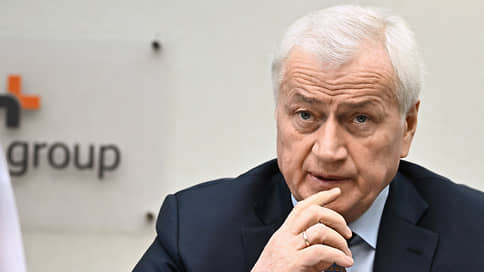“T Plus” went to the minus – Newspaper Kommersant No. 67 (7512) dated 04/18/2023
[ad_1]

Andrei Vagner left the post of CEO of T Plus ahead of schedule. According to Kommersant’s information, shareholders have been looking for a replacement for Mr. Wagner since 2022, but the decision to dismiss right now turned out to be unexpected. The parties do not give reasons, but Kommersant’s interlocutors point to a recent scandal between a top manager and Power Machines over the supply of the first Russian gas turbine for new power units.
On April 17, the Board of Directors of the T Plus energy company terminated the contract with the company’s CEO Andrey Vagner ahead of schedule, according to the company’s disclosure data. The contract was to end on December 31, 2025. Alexander Vilesov was elected to the position of the head of T Plus, who since the spring of 2019 has worked as Deputy General Director of T Plus for commerce and development. The contract is signed for a year.
PJSC T Plus (until June 2015 – IES-Holding) is the sixth energy company in Russia in terms of generating assets (14.6 GW). Revenue in 2021 according to IFRS – 419.4 billion rubles, net profit – 16.7 billion rubles, EBITDA – 66.6 billion rubles. In 2018, the Renova group of Viktor Vekselberg owned 39.59% of T Plus. There is no more up-to-date data on the composition of shareholders.
Shareholders of T Plus have been looking for a replacement for Andrei Vagner since last year, several Kommersant interlocutors say. However, the decision to terminate the contract ahead of schedule was unexpected for the management of the energy company, including Andrei Vagner himself, Kommersant sources say. The message “T Plus” does not name the reasons for dismissal. Mr. Wagner did not comment on the decision of the board of directors to Kommersant. Renova declined to comment.
Andrey Vagner is an old-timer in the industry who has worked in the power industry since the 1990s and participated in the reorganization of RAO UES of Russia. He joined T Plus in 2009 as first deputy head of the company, from December 2016 to March 2017 he served as president of T Plus, then he was approved as first deputy general director, and in 2019 he was elected general director. Kommersant’s interlocutors in the industry call Mr. Wagner an “experienced leader” and an “independent manager” who has his own opinion on key issues.
In the last two years, one of the important topics for T Plus was the discussion of a contract with Power Machines for the supply of a GTE-65 gas turbine for the construction of power units at Saratovskaya CHPP-2 (115 MW) and Permskaya CHPP-14 (105 MW) with total CAPEX of 16.9 billion rubles. and launch on April 1, 2028. “Silmash” offered to sell “T Plus” the prototype GTE-65, but “T Plus” initially counted on a serial machine.
The conflict became public at the Vedomosti conference on April 5, when Andrei Wagner criticized the work of Silmash. “I don’t understand: reinventing the wheel is so difficult, long and for such a lot of money. These are turbines from the power range that exists in the hundreds in the world,” he said. Mr. Wagner also noted that the turbine is still planned to be produced in 2025, although a power unit needs to be built for it now. Then the general director of “Silmash” Alexander Konyukhov told reporters that “T Plus” offers them “enslaving” terms of the contract, assuming a complete withdrawal of the energy company from the project.
Andrey Wagnerthen the CEO of T Plus, about GTE-65 on November 30, 2022:
“There are a lot of nuances – both in the timing of the manufacture of the turbine, and in its quality.”
Independent analyst Yuri Melnikov notes that generating companies have contractual obligations to commission capacity with specific deadlines, parameters and reliability characteristics, as well as clear financial responsibility. Gas turbine manufacturers do not have such strict restrictions, and the source of financing of possible fines and losses is unclear. This balance of interests is the essence of the conflict between generating companies and gas turbine manufacturers, which has not fundamentally changed since the time of the first program for the construction of new capacities. However, now the situation has worsened, Yuri Melnikov believes: the demand for gas turbines as part of the reform of RAO UES of Russia amounted to about 100 units, and now there is nothing close to that.
[ad_2]
Source link





